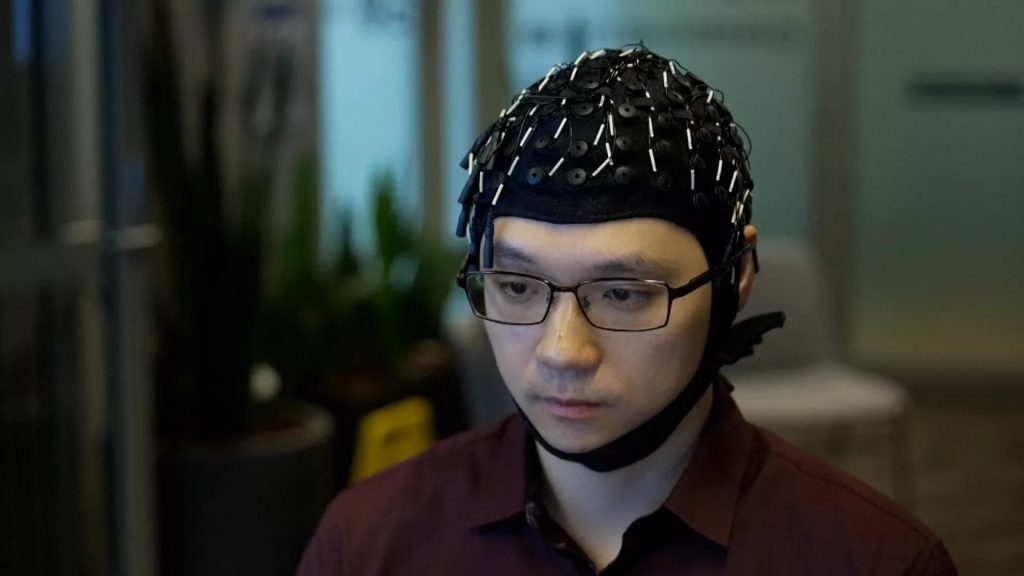 Credit: AP Photo/AuBC
Credit: AP Photo/AuBC Scientists at the University of Technology Sydney (UTS) have developed an AI-powered thinking cap that can translate brain activity into written text, by recording brainwave patterns, also known as EEG signals, while AI models convert thoughts to text.
Unlike previous systems requiring invasive brain implants or MRI scans, the thinking cap technology works using a non-invasive cap and AI for thought-to-text.
“At first, we use the deep learning model to translate the brain signals into the intended words,” said, a lead researcher at UTS, Chin-Teng Lin. “And then, we use the large language model to make the match of the decoded words and make up for the errors in EEG decoding,” he explained.
Currently, the brain decoder translates human thoughts system and achieves about 75% accuracy, but researchers seek to push that figure closer to 90% as technology improves.
Mind-Reading AI Can Translate Brainwaves into Written Text
The potential of the AI powered thought decoders device that goes beyond novelty could change the lives of stroke patients and others with speech impairments. Traditional brain-computer interfaces, such as Elon Musk’s Neuralink or fMRI-based systems, often involve surgery or expensive imaging techniques.
The GPT mind-reading cap offers a non-invasive alternative to real-world medical applications.
In 2023, “A High-Performance Neuroprosthesis for Speech Decoding and Avatar Control” study demonstrated how a stroke patient regained the ability to communicate through a brain-computer interface combined with AI-generated speech. Now, experts believe wearable devices like the AI EEG decoding UTS cap could offer a more accessible path to recovery.
“As scientists, we look at a medical condition and we look at what function has been affected by that medical condition. What is the need of the patient?” said a researcher at the University of NSW’s bioelectronics department, Mohit Shivdasani.
“We then address that unmet need through technology to restore that function back to what it was. After that, the sky’s the limit,” continued Shivdasani.
While brain-computer interface cap technology is still in development, its implications are significant. If perfected, the AI decoding thoughts cap could provide new avenues for people with disabilities to express themselves and reconnect with the world – using only their thoughts.
Inside Telecom provides you with an extensive list of content covering all aspects of the Tech industry. Keep an eye on our Medtech section to stay informed and updated with our daily articles.